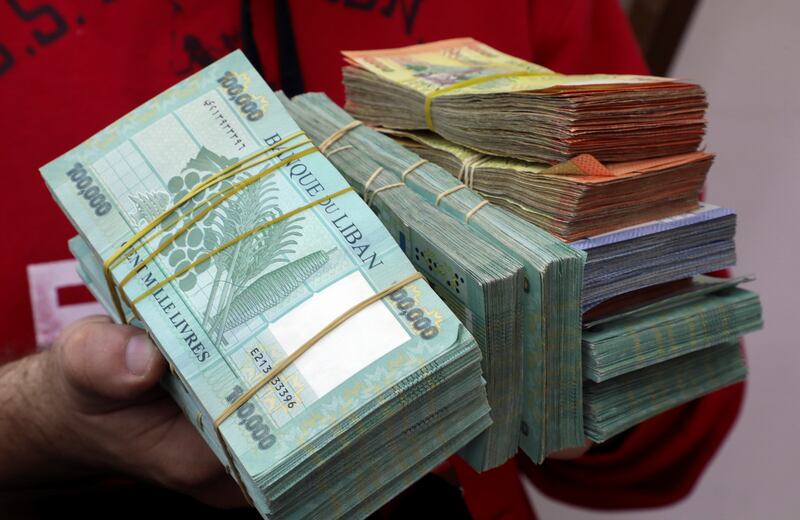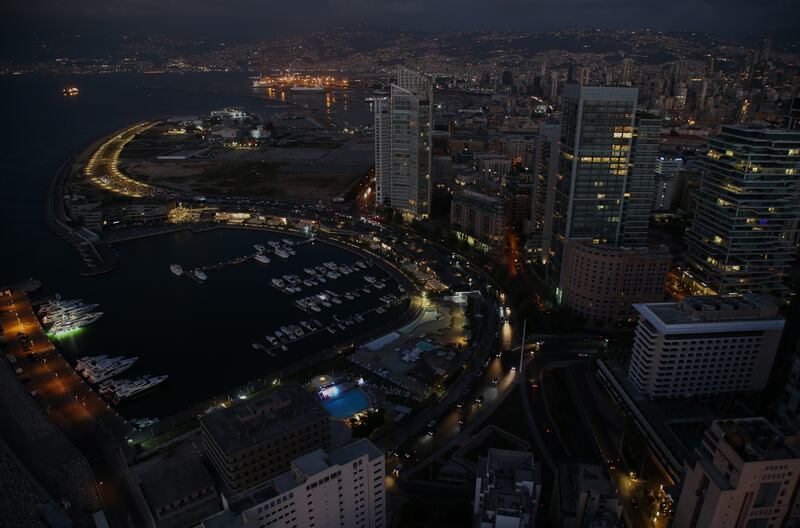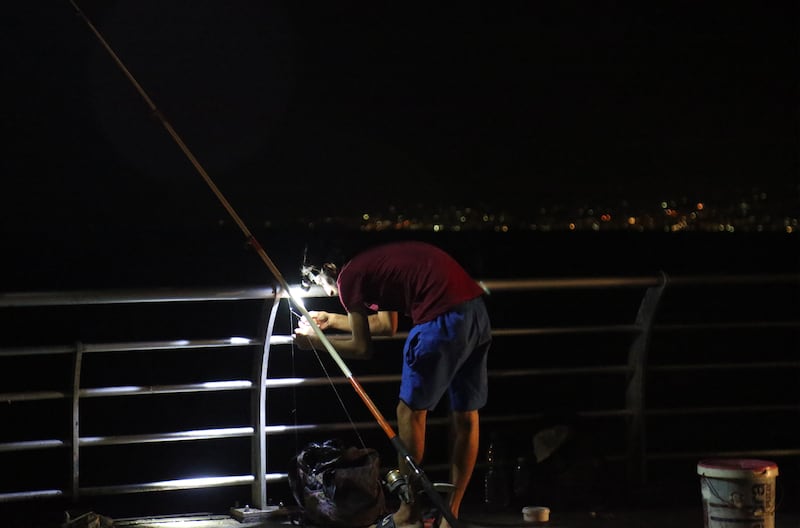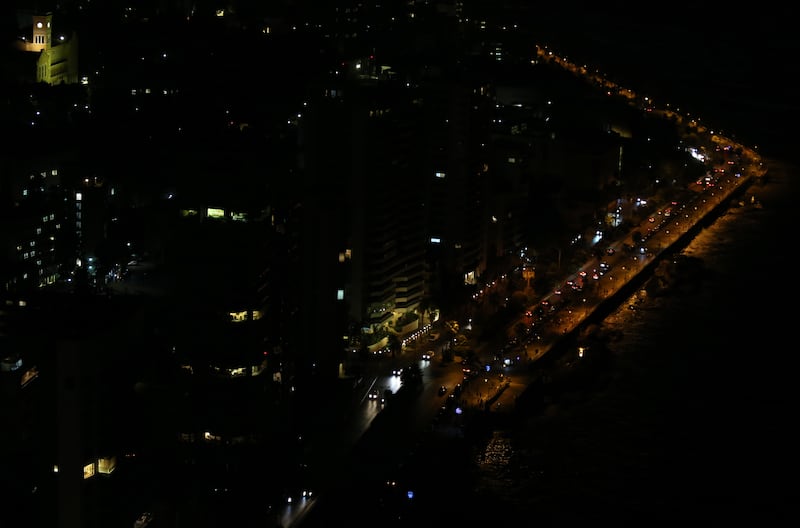Lebanon opened online registration for aid programmes including a multimillion-dollar World Bank cash assistance plan on Wednesday, two years after the country’s economy collapsed.
The delay in launching aid programmes after the crisis highlights slow political action in the face of growing poverty. Nearly 80 per cent of the Lebanese population is in need, according to UN data.
“These programmes are not a solution, but rather temporary support to help Lebanese citizens survive,” Lebanon’s Social Affairs Minister Hector Hajjar said at the launch of the programme.
The government’s plan includes two initiatives: a World Bank emergency social safety net programme that will hand out cash assistance to Lebanon's neediest families, and a wider ration card plan that is still under discussion.
The World Bank assistance is a $246 million loan and the ration card plan would cost $556 million.
Both had been on the table for more than a year but disagreements between politicians and donors on transparency and payment mechanisms held up aid delivery.
Lebanese people who want to register have two months to fill out an online form. Payments will begin in early 2022 and will be handed out retroactively for previous months.
The World Bank programme will provide cash assistance to 150,000 of Lebanon’s poorest families, including 87,000 pupils in public schools. Each eligible family can receive $25 of aid and $20 per person, for a maximum of six people. The programme also gives aid to pupils and pays for their school fees.
The programme will be implemented next year pending parliament's approval. Parliament has not convened since October.
The second step of the government's plan is to implement a ration card that would benefit up to 500,000 people. The government is hoping to finance the card through the International Monetary Fund and the World Bank. Talks for this plan have been ongoing for more than a year.
Economic crisis forces Lebanon to rethink car culture
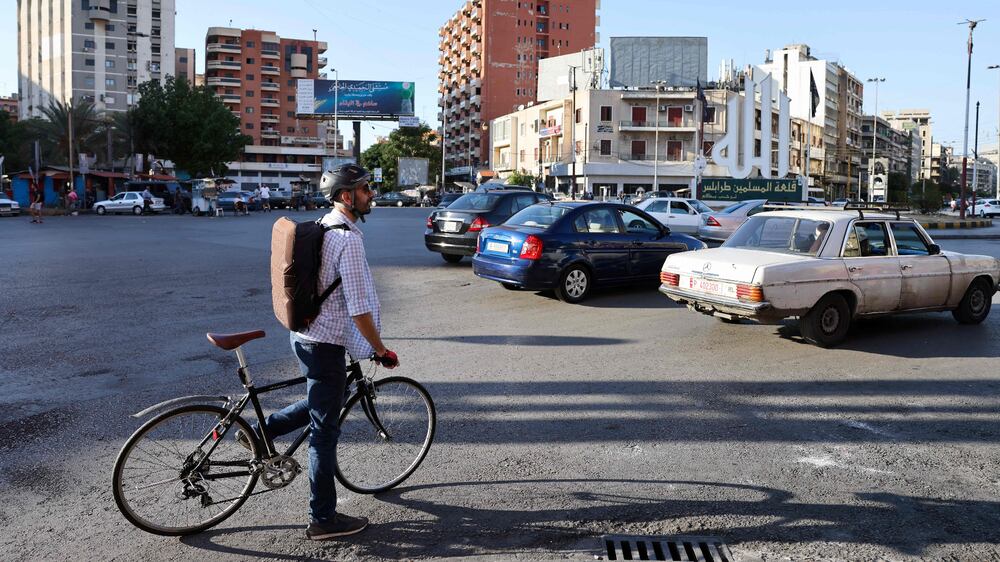
Last summer media reports revealed that Lebanese officials and politicians had delayed the World Bank’s cash assistance programme to negotiate handing out cash assistance in a devaluating Lebanese currency and at a losing exchange rate, so they can cash out the difference.
The assistance will be disbursed in dollars.
Saroj Kumar Jha, regional director of the World Bank Levant Department said “it was a difficult journey and it took us time to get to this positive stage”.
He added the programme will be subject to “intense oversight and scrutiny.”
Lebanese leaders have been internationally criticised for corruption, lack of transparency and political inaction in the face of one of the worst economic crises in modern history.
Social workers and volunteers welcomed the government’s move to open up registrations but decried delays and requirements they say are unrealistic.
“Any help is obviously welcome but it’s such a long wait for such a small sum,” said Rayan Khatoun, a volunteer at local charity Kelna Yani Kelna.
The World Bank aid for a family of four is not enough to keep a family warm or cover electricity bills, she said.
Online registration will exclude many with no access to the internet or who cannot read in a country where electricity cuts can last up to 23 hours a day.
“To expect someone on a minimum wage salary or less to have access to the internet shows an incredible disconnect between authorities and people on the ground," she said.
Delays in implementing social and economic reforms are being compounded by political unrest.
The Lebanese Cabinet has not met in more than a month after Hezbollah and its allies threatened to boycott meetings if the judge investigating the Beirut port blast was not dismissed.
The judge had summoned politicians close to the Iran-backed group for questioning.
The explosion last year killed more than 200 people and injured more than 6,500.
“There needs to be more urgency in these decisions, but we already know how that goes in Lebanon,” Mrs Khatoun said. “There is never any sense of urgency to help people.”
